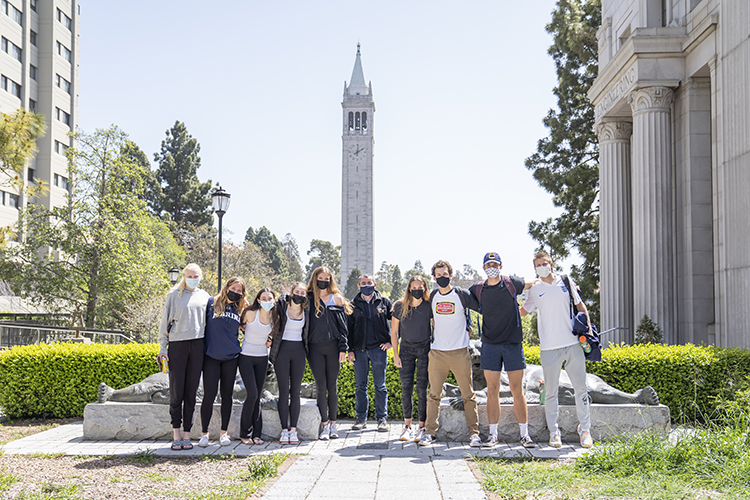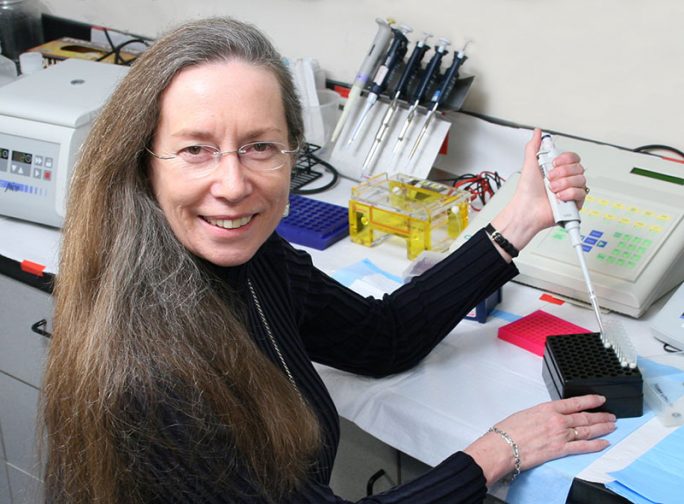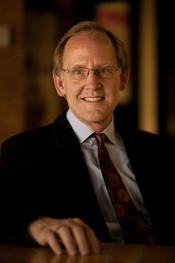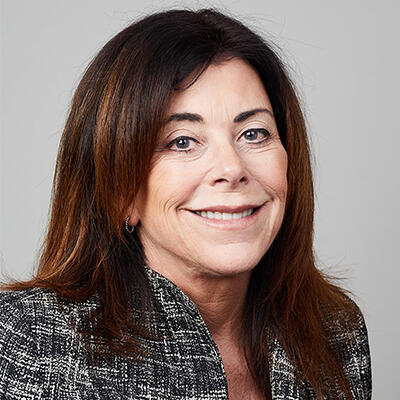For Faculty
Table of Contents

About the Program
The Freshman and Sophomore Seminar Program arose from the conviction that early intellectual contact with faculty members would greatly enhance the undergraduate experience at Berkeley. Every semester, faculty members from every campus department come together to offer approximately one hundred seminars on an astonishing range of topics. Faculty are encouraged to design seminars on topics they don’t typically have a chance to teach, including an emerging research area or an outside interest. Students are encouraged to choose their seminars based on the pull of intellectual curiosity, a desire to explore enticing and even unfamiliar realms.
Seminars come in all shapes and sizes: there are enough models, and enough flexibility, to make it possible for any faculty member who would like to participate to do so. What all the seminars have in common is the sense of intellectual excitement that is generated when faculty and students come together to explore a mutual interest together. All of these classes are also small enough to allow for the interactions that characterize a good seminar.


Faculty Participation Form
Senate faculty, active and emeriti, who would like to offer a seminar in an upcoming semester should first let their department chair and scheduler know, and then submit their seminar information to the Faculty Participation Form.
Grant Guidelines
As an incentive for increasing the number of high quality freshman and sophomore seminars, we award an unrestricted grant to any Senate faculty member, active or emeritus, offering a one- or two-unit seminar taught in addition to their regular teaching assignment. Eligible seminars will qualify for a $3000 grant.
What can the grant funds be used for? The grant may be expended for any purpose for which research or professional development funds can legitimately be used—e.g. travel, equipment, research assistance. Note that any goods (including electronic and computing equipment) bought with these or any other university funds are the property of the university, and your department may ask that you return this equipment if you leave the university or retire, for instance. The grant can also be used for expenses related to the seminar, including entertaining students for dinner at one’s home, within university guidelines pertaining to entertainment expenses.
Grant funds cannot be used to pay yourself a summer salary, though you may choose to use the grant to pay the salary of a research assistant.
Who is eligible to receive a grant? Any Senate faculty member, active or emeritus, offering a one- or two-unit seminar taught in addition to his or her regular teaching assignment, is eligible.
Are there special rules that apply to emeriti? Yes. For our purposes, any freshman or sophomore seminar, of any unit value, is likely to count as an overload, since the regular teaching assignment for emeriti is by definition zero.
Can faculty members teach a freshman or sophomore seminar, and receive a grant for it, while on sabbatical? Yes. A one- or two-unit seminar taught by a faculty member on sabbatical would be considered an overload; therefore, a grant would be awarded in such a case. However, teaching such a seminar would not qualify the faculty member for “sabbatical in residence” status, which requires the faculty member to teach a three-unit course. Faculty members on “sabbatical in residence” status do not qualify for the grant.
What is the policy on team teaching? The eligible faculty members on the team will split the $3000 grant equally.
Is there a limit to the number of grants one faculty member may receive? There is a limit of one $3000 grant per semester. Additional seminars taught in subsequent semesters are likely to be eligible. A grant will be awarded automatically the first time you teach a seminar as an overload beginning in fall 1998. However, additional grants to a given faculty member will be awarded only if the initial offering has been successful. This does not mean that every student evaluation needs to be glowing, but we are looking for evidence that you have made a conscientious effort to ensure that students were intellectually engaged in your course and that they had ample opportunity and encouragement to participate in the discussions.
When can I start spending the grant? Around the beginning of each semester, the Freshman and Sophomore Seminar Program office sends a form to the Chair of each department sponsoring one or more seminars. If the Chair answers the questions on the form in such a way as to indicate that a given faculty member is eligible, the grant funds will be transferred to a departmental account specified by that department’s finance staff approximately midway through the semester in which the seminar is being offered. If you would like to begin spending the money before the semester starts, on course preparation or the like, you might have your department’s fiscal staff contact fssp@berkeley.edu to verify that the funds are indeed pending transfer, and receive a fund number.


News & Updates
- Make a Difference with Freshman and Sophomore Seminars (Sep 3, 2025)
- Freshman and Sophomore Seminars: Make a Difference (Jan 29 2025)
- Make a Difference with Freshman and Sophomore Seminars (Sep 05 2024)
- Freshman and Sophomore Seminars: Make a Difference (Jan 23 2024)
- Freshman and Sophomore Seminars: Make a Difference (Aug 31 2023)
- Make a difference with Freshman and Sophomore Seminars (Jan 26 2023)
- You’re Invited: Freshman and Sophomore Seminars Anniversary Reception (Oct 03 2022)
- 30 Years of Freshman and Sophomore Seminars (Sep 01 2022)
- 30 Years of Freshman and Sophomore Seminars: Make a Difference (Jan 27 2022)
- Make a difference with Freshman and Sophomore Seminars (Sep 02 2021)
- Freshman and Sophomore Seminars – Submission Deadline 9/25/20 (Sep 02 2020)
- The importance of Freshman and Sophomore Seminars (May 07 2020)
- Two new themes for freshman seminars – Fall 2020 (Feb 14 2020)
- Make a difference–teach a Freshman and Sophomore Seminar (Jan 22 2020)
- Freshman and Sophomore Seminars: Deadline Extended (Oct 15 2019)
- Freshman and Sophomore Seminars: Make a Difference (Aug 22 2019)
- On the Same Page + Freshman and Sophomore Seminars deadline (Feb 19 2019)
- Freshman and Sophomore Seminars: Make a Difference (Jan 15 2019)
- Freshman and Sophomore Seminars – Deadline Extended (Sep 25 2018)
- Freshman and Sophomore Seminars: Make a Difference (Aug 27 2018)
- Freshman and Sophomore Seminars deadline extended (Feb 23 2018)
- Freshman and Sophomore Seminars: Make a Difference (Jan 25 2018)
- Freshman and Sophomore Seminars, spring 2017 deadline September 16, 2016 – DEADLINE September 15 (Sep 07 2017)
- Freshman and Sophomore Seminars, spring 2017 deadline September 16, 2016 (Aug 14 2017)
- Freshman and Sophomore Seminars deadline extended (Feb 23 2017)
- Make a Difference: Teach in the Freshman and Sophomore Seminars (Jan 31 2017)
- Reminder: Freshman and Sophomore Seminars Deadline September 16 (Sep 13 2016)
- Freshman and Sophomore Seminars, Spring 2017 Deadline September 16, 2016 (Aug 15 2016)
- Deadline Extended to Sept. 18 – Freshman and Sophomore Seminars, Spring 2016 (Sep 09 2015)
- Freshman and Sophomore Seminars, Spring 2016 deadline Sept. 11, 2015 (Aug 10 2015)
- New March 13th Deadline for Fall 2015 Freshman and Sophomore Seminars (Mar 02 2015)
- Freshman and Sophomore Seminars, Fall 2015 Deadline (Jan 30 2015)
- Reminder – Freshman and Sophomore Seminars, Fall 2014 Deadline February 28, 2014 (Feb 26 2014)
- Freshman and Sophomore Seminars, Fall 2014 Deadline February 28, 2014 (Jan 30 2014)
- Announcing $3,000 Freshman and Sophomore Seminar Grants for Spring 2014 (Sep 13 2013)
- Reminder – Spring 2014 Freshman and Sophomore Seminars – Deadline September 13, 2013 (Sep 11 2013)
- Spring 2014 Freshman and Sophomore Seminars – Deadline September 13, 2013 (Aug 08 2013)
- Freshman and Sophomore Seminars is still accepting proposals (Jun 07 2013)
- Reminder – Fall 2013 Freshman and Sophomore Seminars. Deadline March 1, 2013 (Feb 25 2013)
- Fall 2013 Freshman and Sophomore Seminars. Deadline March 1, 2013 (Jan 31 2013)
- Freshman and Sophomore Seminars Anniversary Reception (Oct 01 2012)
- Freshman and Sophomore Seminar Spring 2013 Deadline: Sept 21, 2012 (Sep 18 2012)
- Freshman and Sophomore Seminar – Spring 2013 – Deadline Sept 21, 2012 (Aug 30 2012)
- REMINDER: Freshman and Sophomore Seminars, fall 2012 – Deadline March 2 (Feb 21 2012)
- Freshman and Sophomore Seminars, fall 2012 – Deadline March 2 (Jan 31 2012)
- Reminder: Freshman and Sophomore Seminars – Deadline – Friday 9/16 (Sep 13 2011)
- Freshman and Sophomore Seminars Spring 2012 – Deadline Sept 16 (Aug 22 2011)
- Freshman Seminar Grants Raised for Fall 2011 (Apr 06 2011)
- Freshman & Sophomore Seminars Fall 2011 – DEADLINE: Fri, March 4 (Feb 28 2011)
- Freshman and Sophomore Seminars Fall 2011 (Feb 03 2011)
- Freshman and Sophomore Seminars (Jun 23 2005)
- Freshman and Sophomore Seminars–Sept 9th Deadline (Aug 16 2005)
- Freshman Seminar Program Grants (Oct 16 2002)


Contact Us
If you have questions, contact Aileen Liu, Director of Curricular Engagement Initiatives, or Heather Mäkiharju, Academic Engagement Policy Analyst.